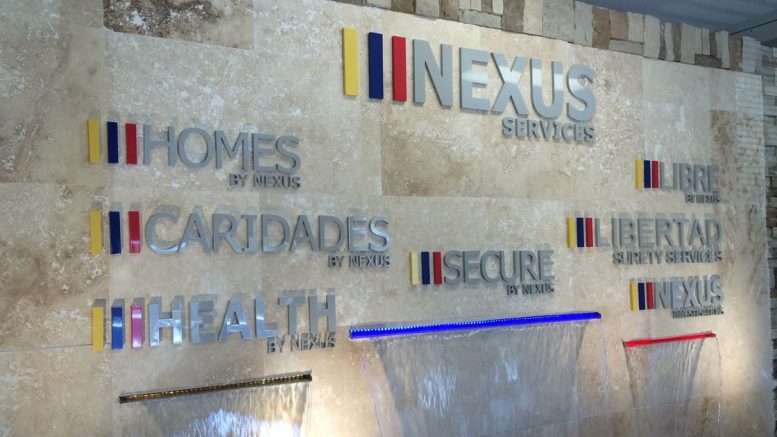The lawsuit claims Libre leases the GPS trackers under false pretenses and “preys on detainees’ vulnerability and limited understanding of English to foist crushing financial terms and GPS shackles on detainees in exchange for its ‘service’ of arranging for a third party to post detainees’ bonds.”
The lawsuit contends that through misrepresentations and omissions, Libre can charge close to $10,000 in the first year alone through an “unconscionable” lease agreement. The suit contends the agreement is written mostly in English, is laden with deceptive language and includes a Spanish disclosure that the plaintiffs say doesn’t represent the full cost of the service.
When undocumented immigrants are detained by U.S. Immigration and Customs Enforcement, those not deemed a flight risk are typically given bond with an upfront cost usually somewhere between 10 and 20 percent, which detainees are usually unable to pay, the lawsuit said. The upfront fee is the only non-refundable payment to an immigration bail bond company, according to the lawsuit.
However, the lawsuit said Libre charges a bond security payment of 20 percent — purportedly the high-end rate in the industry— and demands additional nonrefundable payments of $880 for an activation fee and another $420 a month for a GPS bracelet. “All in all, this is a shockingly bad deal, even relative to the other bad options available to immigrant detainees, and is unconscionable on its face,” the lawsuit states.
For a $10,000 bond, the lawsuit says in the first year alone an immigrant will pay roughly $9,000, which is non-refundable, and said the non-refundable fee rises to $13,000 in the second year.
“Contrary to its marketing representations, LBN is not in the business of helping as a neutral advisor for families who would like to get a loved one out of immigration detention. Rather, LBN is in the business of leasing GPS trackers under false pretenses, and forcing detainees to haul and charge them, day-in and day-out,” the lawsuit says.
The lawsuit includes allegations that the few Spanish sections in Libre’s contract conceal information; that the company misrepresents itself as “an official organ” of the government; that it fails to inform detainees about the monthly fee and does not disclose that detainees will be moved from ICE’s “detained” docket to the slower-moving “non-detained” docket, allegedly obligating them to pay Libre’s monthly fees for years. The GPS tracker provided by Libre is also criticized in the lawsuit.
“In reality, the ankle monitor is a heavy shackle that causes bruising when it is hauled by the wearer and forces the migrant to be tethered to a wall electrical outlet for hours each day for charging, none of which is disclosed at signup,” the lawsuit says.
Libre pays $3 a day for each tracker and charges detainees $14 a day, according to the lawsuit, which also contends Libre charges a $4,000 replacement fee for a device that reportedly costs just $450.
The federal class-action lawsuit, filed Feb. 15 in California, seeks a minimum of $5 million.
Asked to respond to the lawsuit, Nexus spokesperson Jen Little said in an email Friday morning, “But for the innovative and supportive programs offered by Libre by Nexus, thousands of immigrants would be languishing in over-crowded, under-staffed detention facilities at a tremendous human cost to those incarcerated as well as an estimated economic burden of hundreds of millions of dollars for the American taxpayers.” Little added, “Without Libre by Nexus, the only option for most immigrants in detention is to stay in detention for months and years at a time. This reality is not desirable for immigrants in detention, their families, or the larger community of U.S. taxpayers.”
CEO Mike Donovan also stated, “We incarcerate tens of thousands of migrants in this country every day. It is ridiculous to assert that the migrant is better off in jail than with their family, and it is even more silly to suggest that taxpayers are better off paying hundreds of dollars a day per person to keep migrants locked away. Libre by Nexus provides a service wherein immigrants in detention and their families can be reunited at a much smaller cost that they bear, rather than taxpayers being responsible for hundreds of millions of dollars in detention costs.”
Donovan said his company’s clients show up for court nearly 100 percent of the time.
Vasquez v Nexus by David Fritz on Scribd
Source: www.newsleader.com




